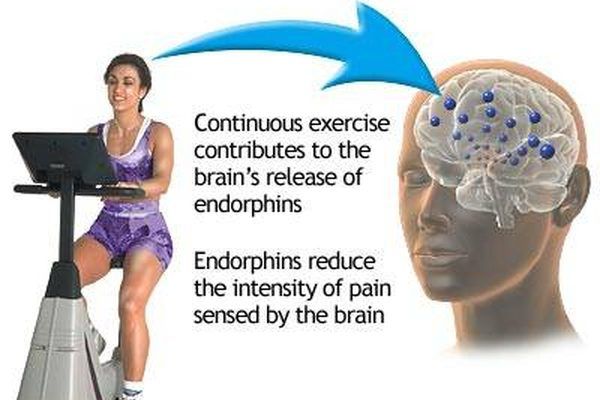Last summer I decided to engage in a healthy lifestyle to very mixed results. While I ate right, which included all my greens, I just couldn't force myself to work out as regularly as I would have liked.
Sure I did the occasional jog around the park or join a friend for an exercise class, but it was rare that it was based on my own volition. I had wished there was something to keep me motivated and add a spring in my step. But, failing that, I wouldn't have been opposed to a magic pill that would do all the work for me.
Well, it seems like someone was reading my mind, because a pill for our troubles may be just around the corner.
Ronald Evans, the director of the gene expression laboratory at the Salk Institute for Biological Studies in La Jolla, California said he along a team of scientists are trying to develop a drug that could mimic the benefits of doing a cardio workout.
This drug wouldn't be able to replicate the affects of a strengthening exercises, but it has the potential to "reprogram genes and recalibrate muscles in a way that mimics exercise."
While the drug's concept has gained traction from the athletic community, the pill is mainly targeted to individuals who have limited mobility and are unable to work out.
"There are many reasons why people cannot run or walk or exercise," Evans says. "If you can bring them a small molecule that can convey the benefits of training, you can really help a lot of people."
While this pill sounds like a fascinating alternative to any form of exercise, questions have been raised about the possible side-effects consuming the drug might incur.
Evans told The Current's Anna Maria Tremonti that at this point in developing the pill, there are very few side-effects.
"Most of the downside of exercise is people who run their whole life; they get injuries and their knees break down or their cartilage breaks down, but in this type of exercise in the pill, if we get that benefit there is no downside," he said.
However, since the drug has only been tested on mice, Professor Vybarr Cregan-Reid isn't so sure. He said it could pose serious consequences on both an individual's mind and body, such as the lack of production of endorphins.
"Endorphins are important neurotransmitters that operate all around the body, they dilate our veins and make oxygen more freely available. They're wonderful things," he said. "It's sedentariness that's bad for us and anything that discourages movement is fundamentally a bad idea."
"Exercise is already a hack. Exercise is already something that we have to do because our lives are really out of joint with what our bodies are supposed to be doing, what our bodies need," he explained, discrediting the basis of the pill even further.
"This is a pill that means that we can exercise a lot less and still get the same metabolic advantages from having done the exercise. Our bones aren't going to be changing as a result of taking this pill," Cregan-Reid added.
The professor also said over the centuries, humans have seen a drop in their bone density as they've become more inactive.
"What we really, really don't need is a pill that's going to encourage us to do even less, and for our bone density to drop even further," he remarked.
However, Evans isn't backing down on his stance.
"I like exercising, and that's good enough for me," Evans told The Toronto Star. "People are designed to move. But if they can't, it's not healthy to be sedentary."
"That's why we are developing this drug. We are trying to take science out of the laboratory and bring it into the clinic in a way that can change people's lives. If we can do that, it would be a game-changer," he concluded.
Would you take this pill to replace your workout?
[H/T: CBC, The Toronto Star]




